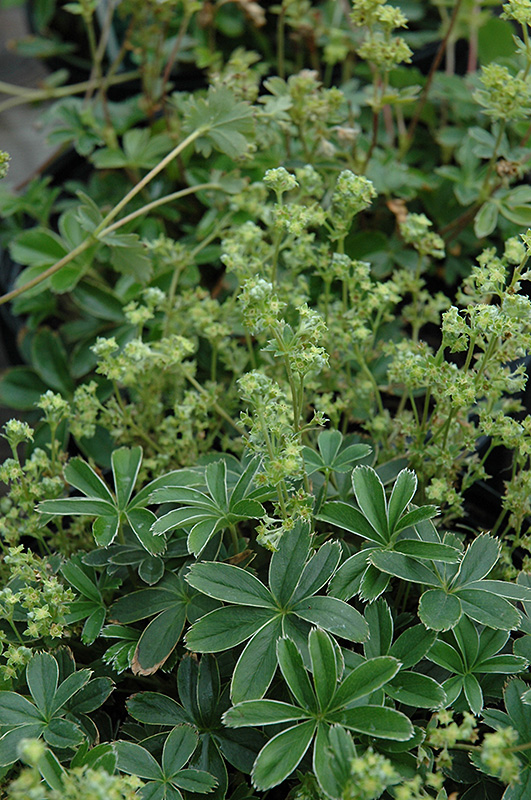PLANTFINDER
search. discover. plant.
Height: 8 inches
Spread: 12 inches
Sunlight:
![]()
![]()
Hardiness Zone: 2
Description:
Billowy sprays of chartreuse flowers and velvety scalloped leaves add magnificent texture to shaded areas; foliage has silver edges and undersides and is deeply cut; pest tolerant and deer resistant
Ornamental Features
Alpine Lady's Mantle features subtle cymes of chartreuse flowers at the ends of the stems from early to mid summer. The flowers are excellent for cutting. Its small deeply cut round leaves remain grayish green in color with distinctive silver edges throughout the season.
Landscape Attributes
Alpine Lady's Mantle is a dense herbaceous perennial with a mounded form. Its relatively fine texture sets it apart from other garden plants with less refined foliage.
This is a relatively low maintenance plant, and is best cleaned up in early spring before it resumes active growth for the season. Deer don't particularly care for this plant and will usually leave it alone in favor of tastier treats. Gardeners should be aware of the following characteristic(s) that may warrant special consideration;
- Spreading
Alpine Lady's Mantle is recommended for the following landscape applications;
- Mass Planting
- Rock/Alpine Gardens
- Border Edging
- General Garden Use
- Groundcover
Planting & Growing
Alpine Lady's Mantle will grow to be about 7 inches tall at maturity, with a spread of 12 inches. Its foliage tends to remain low and dense right to the ground. It grows at a medium rate, and under ideal conditions can be expected to live for approximately 10 years. As an herbaceous perennial, this plant will usually die back to the crown each winter, and will regrow from the base each spring. Be careful not to disturb the crown in late winter when it may not be readily seen!
This plant does best in partial shade to shade. It prefers to grow in average to moist conditions, and shouldn't be allowed to dry out. It is not particular as to soil type or pH. It is highly tolerant of urban pollution and will even thrive in inner city environments. This species is not originally from North America. It can be propagated by cuttings.
A NetPS Plant Finder tool

